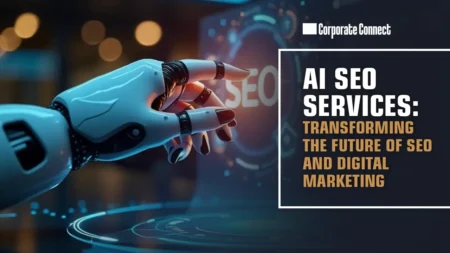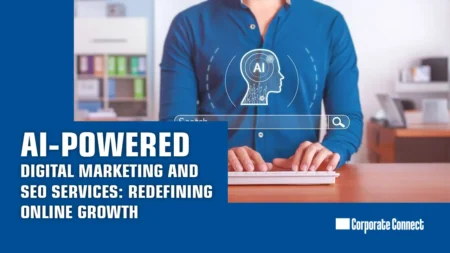Why Should Today’s Leaders Embrace Lifelong Learning
Leadership today is evolving faster than ever. New technologies, changing work cultures, and global disruptions are transforming how organisations operate. In this environment, experience alone isn’t enough — leaders need to keep learning, adapting, and growing to stay effective.
Lifelong learning has become more than a personal choice; it’s a professional necessity. The most successful leaders today are those who remain curious, open-minded, and ready to learn at every stage of their journey.
The Changing Nature of Leadership
There was a time when leadership was seen as the end goal of a career, a position earned after years of experience. But in today’s dynamic world, leadership is an ongoing process. What worked a few years ago may not work now.
Modern leaders are expected to:
- Navigate constant technological change.
- Manage diverse, multi-generational teams.
- Lead organisations through uncertainty.
- Balance business goals with social responsibility.
These challenges require new ways of thinking. Lifelong learning helps leaders stay relevant and confident in a world that’s always changing.
Why Lifelong Learning Matters for Leaders
For leaders, continuous learning is not about adding new skills just for the sake of it. It’s about evolving perspectives and staying adaptable. Here’s why it matters so much today:
1. Staying Ahead in a Rapidly Changing World
Every industry is being reshaped by innovation. Leaders who invest in learning are better prepared to anticipate change, make informed decisions, and guide their teams effectively.
2. Encouraging a Learning Culture
When leaders actively learn, they set an example. Teams are more likely to explore new ideas and experiment when they see their leaders doing the same. This creates a culture of growth and innovation within the organisation.
3. Strengthening Emotional Intelligence
Leadership today requires more than strategic thinking; it requires empathy. Continuous learning helps leaders understand human behaviour, manage conflicts, and connect with people more authentically.
4. Improving Decision-Making
Leaders who keep learning have a broader perspective. They can analyse situations from different angles and make better, more balanced decisions.
5. Building Resilience
Lifelong learning keeps the mind active and adaptable. Leaders who engage in continuous learning are better equipped to handle uncertainty and lead confidently through change.
Expert Insight: Learning Keeps Leaders Relevant
Many leadership experts believe that the ability to learn continuously is what separates great leaders from good ones. As one leadership coach said, “The moment a leader stops learning, they stop growing; and so does their team.”
This mindset reflects a new kind of leadership; one that values curiosity, openness, and adaptability over rigid experience.
How Leaders Can Commit to Lifelong Learning
The good news is that lifelong learning doesn’t require taking long breaks from work. With flexible programs and digital platforms, senior professionals can keep growing while managing their responsibilities.
Here are some effective ways leaders can integrate learning into their professional lives:
- Join leadership programs: Enrolling in the best senior leadership program helps leaders explore new strategies, frameworks, and global best practices.
- Engage in peer learning: Interacting with other leaders from different industries broadens perspective and builds collaborative thinking.
- Stay curious: Read, listen to podcasts, and explore new ideas outside your field to expand your understanding of the world.
- Seek feedback: Growth begins with self-awareness. Honest feedback from peers and mentors helps identify areas for improvement.
- Reflect regularly: Take time to think about your experiences and how they shape your leadership style.
Why Programs Like the Senior Leadership Program XLRI Matter
Formal learning opportunities designed for senior professionals make the process of lifelong learning structured and impactful. The senior leadership program at XLRI, for example, focuses on helping leaders refine their strategic thinking, strengthen people management skills, and lead change effectively.
Here’s what such programs typically offer:
- Practical frameworks to solve real-world business challenges.
- Interactive learning with case studies, simulations, and discussions.
- Guidance from experienced faculty and industry experts.
- Peer-to-peer collaboration that fosters new ideas and leadership perspectives.
These programs provide a space for reflection and reinvention, helping leaders rediscover their purpose and prepare for the next phase of their careers.
The Mindset of a Lifelong Learner
Lifelong learning isn’t just about attending courses; it’s about developing a mindset that embraces change. Successful leaders approach learning with curiosity rather than obligation. They see challenges as opportunities to learn, not as obstacles to avoid.
Leaders who embody this mindset:
- Stay open to feedback and different viewpoints.
- Remain adaptable in fast-changing environments.
- Encourage others to grow and take initiative.
- Continuously look for ways to improve themselves and their organisations.
This growth mindset not only enhances leadership effectiveness but also makes leaders more inspiring and approachable to their teams.
Conclusion: Learning Is Leadership
In the end, leadership and learning go hand in hand. The most respected leaders aren’t those who know everything — they’re the ones who are always willing to learn something new.
By embracing lifelong learning, today’s leaders can stay relevant, adaptable, and impactful in a constantly evolving world. Programs like the senior leadership program XLRI and other leadership development programs give professionals the structure, exposure, and confidence to continue growing.
In a world where change is the only constant, lifelong learning isn’t just an advantage; it’s what defines great leadership.








